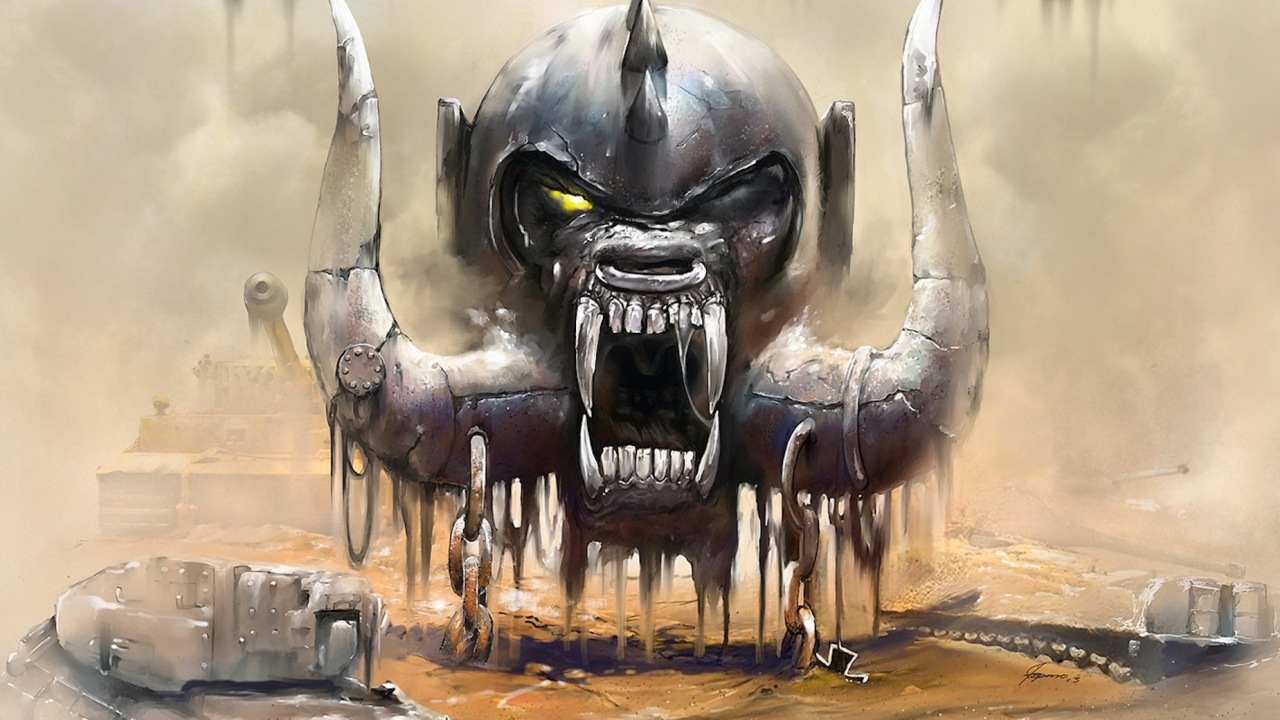You can trust Louder
Applying critical analysis to Motörhead always feels slightly futile. It’s Motörhead – you know what you’re going to get: turbo-charged basslines that growl like an engine whose grease is clogged with grit and drums that gallop away like wild horses. Because they are that rare thing: a one-band genre unto themselves. Cut them open and you’ll just find more Motörhead.
For all Lemmy’s legendary status they have been outsiders since day one – and still are: too punk to be a metal band, too metal to be a punk band and too cynical, street-smart and speed-comedown cranky to exist comfortably in an industry that ultimately likes to tame its beasts. Yet what the wider world rarely acknowledges is that Motörhead are a blues band – cranked up and belted out, but it is blues all the same. White-man blues sung from the street level. Some have even suggested that for nearly 40 years Motörhead have had approximately two-and-a-half songs. They might be right, but what songs they are: the fast one, the even faster one and the heartfelt mid-tempo ballad.
However, Aftershock arrives following a spell of illness from frontman Lemmy – sets cut short, indulgences curbed, a ravaged body finally beginning to rebel – and the suggestion that the recent Golden God winner may not actually be immortal has been hard to take. You wouldn’t know it from opener Heartbreaker, of course, as fine a Motörhead song as they’ve released in a quarter-century. On their 21st album it seems Lemmy is taking on Father Time – and kicking the piss right out of his bladder.
Going To Mexico is a thunderous, dirt-stomping blast of tequila-soaked mania while Coup De Grace rattles with the same rage that’s fuelled Motörhead since before most of us were even born. It’s familiar yet new. And that’s what makes this band remarkable; Motörhead’s unerring dedication to their art remains steadfast and uncompromising. Where other bands stray from the creative path into the cul-de-sac of indulgence (is there anything worse than hearing a band declare that, “This is finally the album we’ve always wanted to make”?) Lemmy has stayed true to a singular musical vision. And that’s not easy to do.
The straight-up, reflective soft blues of Dust And Glass provides a necessary mid-album breather, Lemmy’s scorched croon strangely effecting like a latter-day Johnny Cash. Regular producer Cameron Webb manages to nail down what Motörhead are all about – guts, bile, velocity, power – but without ever smoothing out the bumps in the road. Of course, there are less thrilling moments – Knife is a fairly standard mid-paced rock song that probably won’t make any Greatest Hits collection – but ultimately by closer Paralyzed you’re left wondering how the hell Motörhead have pulled it off again.
Because he is Britain’s premier pirate, cowboy and warthog and, like the ravens in the Tower Of London, when Lemmy goes a part of rock’n’roll – a part of our culture, in fact – goes. But for now we still have Motörhead. And for now they still sound like a deliciously fierce band who mean business.
Sign up below to get the latest from Metal Hammer, plus exclusive special offers, direct to your inbox!

